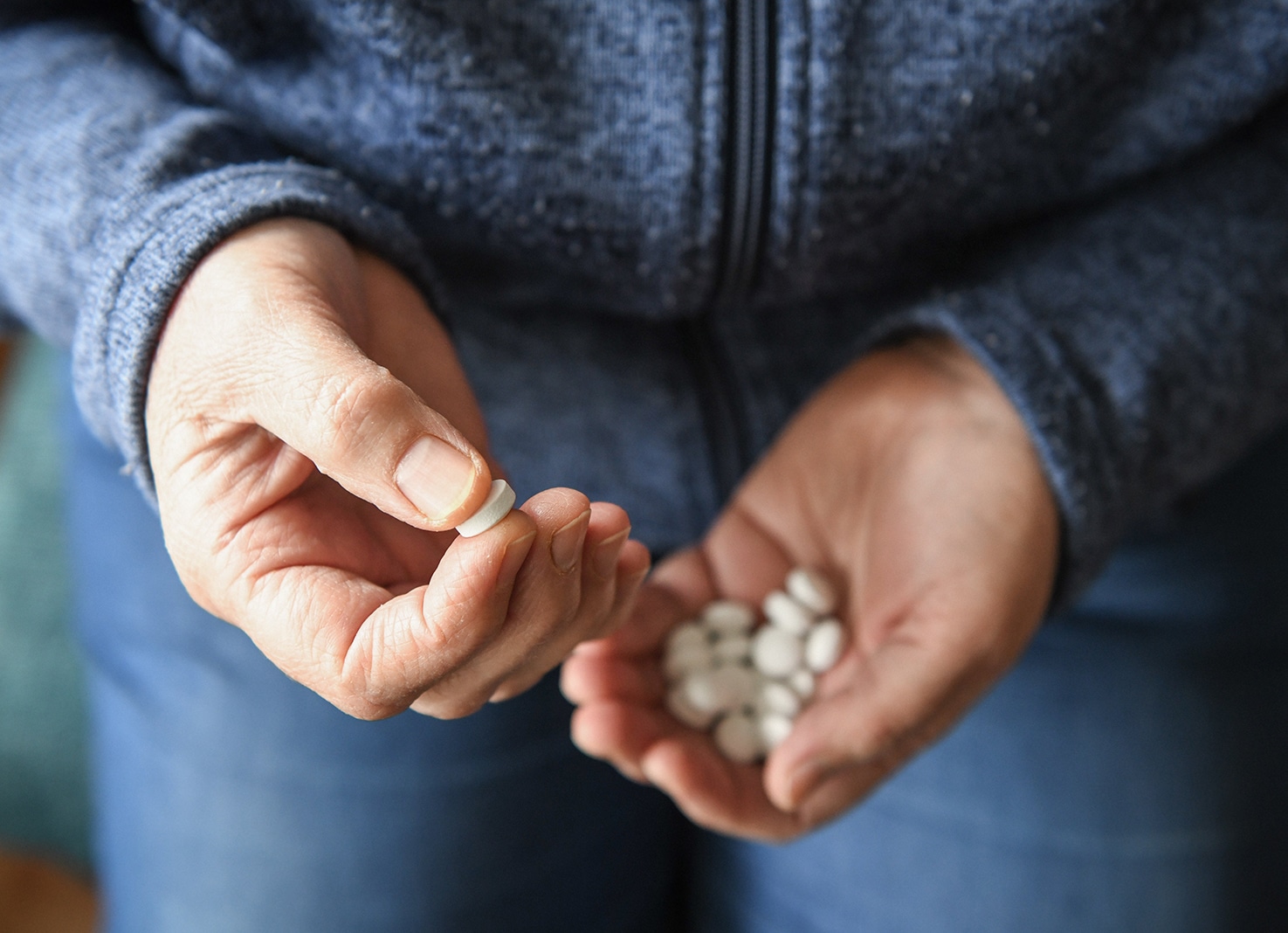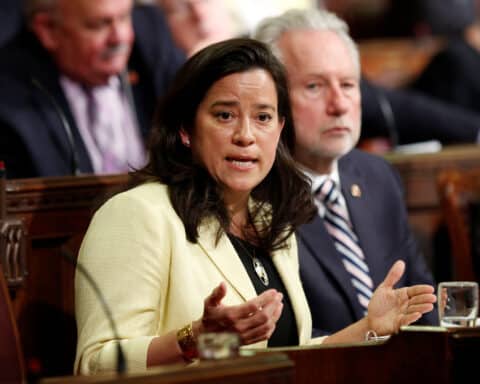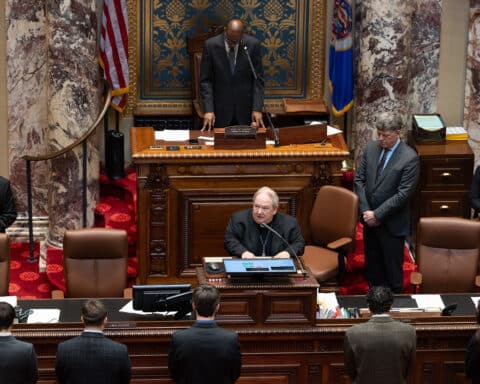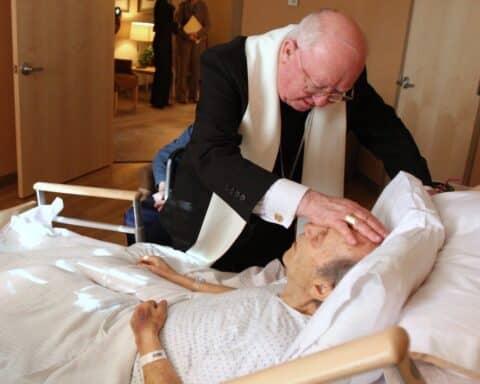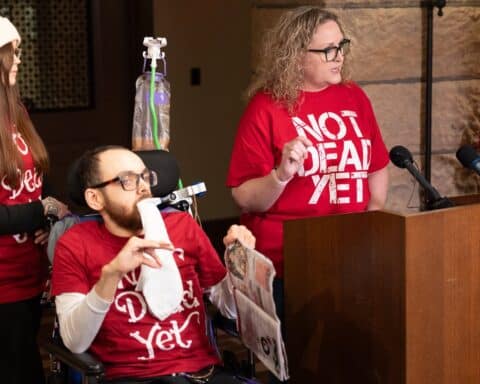“I’m doing MAID at noon. I need you to get back to me before then.”
MAID is medically assisted suicide. Julie had chosen it and was “trying to take one thing off” her wife, Maddy’s, to-do list, her brother recently wrote in the New York Times.
Julie had been suffering with ovarian cancer since 2017, and her doctor was now predicting she had “two to three months” left to live. When Julie, a lawyer, opted for suicide, she explained how she had watched as women in her online support group died with last-minute treatments being tried. “I do not want to die like that,” she told her brother. “This is about taking control of my life.” Her brother, the author of the piece, is a writer (contributing columnist to the Washington Post), Steven Petrow. And she got him to commit to writing about how she died so that more people would know that suicide is an alternative in 10 states and D.C.
Petrow describes how “Maddy, Julie’s spouse of 35 years, picked up the prescription from a local pharmacy.” Insurance wasn’t picking up the cost, so it was $900. Before she died, the family prepared the obituary, program for the memorial, and a 14-minute video of her life for the memorial service to come, which she watched after a final walk in her garden. “I don’t want to leave you,” she cried “for a moment softly.” She sat down on a sofa in her office, “Maddy prepared the medications,” and the Serenity Prayer was said. It was Maddy and the two daughters Julie and Maddy raised together in the end. “Within minutes, she was unconscious.”
God bless this family. God rest her soul. This should not be normalized.
Choosing to love
Her brother dismissed concerns from the Catholic Church and from advocacy groups like the National Council on Disability. In addition to the moral and exploitative concerns, at the same time that the legal availability of medically assisted suicide is increasing, suicide itself has become “a leading cause of death” in the U.S. according to the Centers for Disease Control. This is consistent where the medical choice has been made legal. The law is a teacher, and legal medically assisted suicide mainstreams the idea that taking your own life in any circumstance is an acceptable and even laudable option.
What is the advocacy for medically assisted suicide saying to the suffering — of all kinds — about the value of their lives? That it is courageous to opt out of letting your family love you in your vulnerability?
I’ve hosted more than a few panel discussions on this topic over the years with doctors and ethicists, and family members of loved ones who didn’t choose suicide amid a grave and extreme diagnosis (like brain cancer), who instead treasured the time together. Sister Constance Veit, one of the Little Sisters of the Poor, has two decades experience of being in the rooms of the dying, and she testifies to how she’s never seen someone beg to die in one of their homes for the elderly poor. They are surrounded by love and cared for. They are not cruelly left in pain. Instead, there are miracles of reconciliation and hope that can happen when life is not prematurely ended.
We must do better
Just days before Julie’s story, the NYT magazine ran a long feature suggesting medically assisted suicide be an option for anorexia patients. It was an extreme and heart-wrenching case they highlighted, but we can’t do better than killing the suffering? I couldn’t help but think of our northern neighbor, Canada, where suicide has become all-too-mainstream with the pressures to choose it — including for homeless people. Why help him find a home when we can just encourage him to end it all? This is the opposite of what the Scripture teaches about love, such as in the Sermon on the Mount and on the cross itself.
If you live in one of the states where MAID is not legal, Julie’s brother writes, “you must wait for the Grim Reaper to pay a visit.” Or, as our faith tells us, let the God who created you call you home, with humane care and surrounded by the love that you deserve by virtue of being his creature.
There is no ignoring the real pain of those who choose medically assisted suicide. But we can do better than having them choose to kill themselves. Don’t let the truly heartbreaking stories confuse you about what this is: more mainstreaming of the culture of death. It’s real, and it’s contagious and overwhelming for a throwaway culture drowning in loneliness, anxiety and confusion about life.
It’s not cruel to oppose medically assisted suicide — it’s our moral duty, not just as Christians, but as humans.

